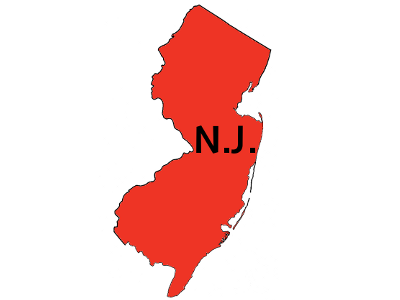
Once again New Jersey online poker operators collectively reported their lowest amount of revenue last month. According to figures released by the New Jersey Division of Gaming Enforcement (DGE), a mere $1.56 million in revenue was generated during November, falling below the previous low point of $1.6 million recorded in September.
Because of the Thanksgiving holiday, November often falls short of the revenue levels achieved in October. That tendency held true last month, and the overall downward trend of the market which has produced declining annual revenues for 20 of the last 21 months continued as well.
The struggling poker market occurs at a time when revenue from online casino games has achieved another all-time high, notching $25.4 million in revenue, more than 16 times the amount collected from online poker rake and tournament fees.
The New Jersey gaming market is also in the midst of a growth period for sports betting, following the repeal of the 1992 Professional and Amateur Sports Protection Act which limited single game sports wagers to the state of Nevada. Since the first sports bet was taken in the state back in mid-June, operators have taken in nearly $1 billion in sports wagers which have produced $73.2 million in revenue. Last month, sportsbooks in New Jersey brought in $21.2 million in revenue, 68% of which was generated from bets placed over the internet. The $14.4 million in online sports betting revenue is 9 times the amount collected from poker tables online.
 Sign Up Today »
Sign Up Today »
- Largest player pool in New Jersey
- Compete for World Series of Poker bracelets from New Jersey
- Great Sign up bonus and player rewards
The partypoker and PokerStars networks are hoping to see relief from the shrinking poker market next year after the neighboring state of Pennsylvania comes online with its real money internet poker market. Though no date has been set for the launch of the Pennsylvania market, it is expected to open sometime early in 2019, most likely in Q1.
Once the Pennsylvania Gaming Control Board (PGCB) gains a sufficient level of comfort that the online poker market is functioning as expected, it will turn its attention to topic of cross-border liquidity sharing.
As a peer-to-peer game, online poker differs from other online gaming verticals which are played against the house instead of other players. Because of this difference, online poker depends on a large pool of players in order to offer a variety of games and big tournament cash prizes.
Gaming regulators in New Jersey, Nevada and Delaware have an agreement in place to allow their licensed operators to combine their online poker player pools across state lines. Because only the All American Poker Network (AAPN) has online poker rooms in multiple states, operators on the partypoker and PokerStars network find themselves at a competitive disadvantage.
WSOP.com and 888 (operating on the AAPN) are the only online poker rooms in New Jersey reaping the benefits of multi-state shared liquidity. Since the virtual poker tables were opened up to include players in Nevada and Delaware, WSOP and 888 have been the only operators in the New Jersey market to post year-over-year revenue increases.
However, both partypoker and PokerStars are expecting to launch in Pennsylvania, and according to New Jersey DGE Director David Rebuck, Pennsylvania regulators have been in talks with New Jersey regarding the sharing of poker player pools since at least 2017.
The addition of Pennsylvania’s nearly 13 million in population would be a significant increase over the potential player pool of 9 million people that reside in New Jersey. Using the success of the AAPN is an indication of how revenue could grow from adding just 4 million in population (the combined amount of people in Nevada and Delaware), an additional 13 million in potential online poker players should be more than enough to allow the New Jersey online poker market to flourish.

